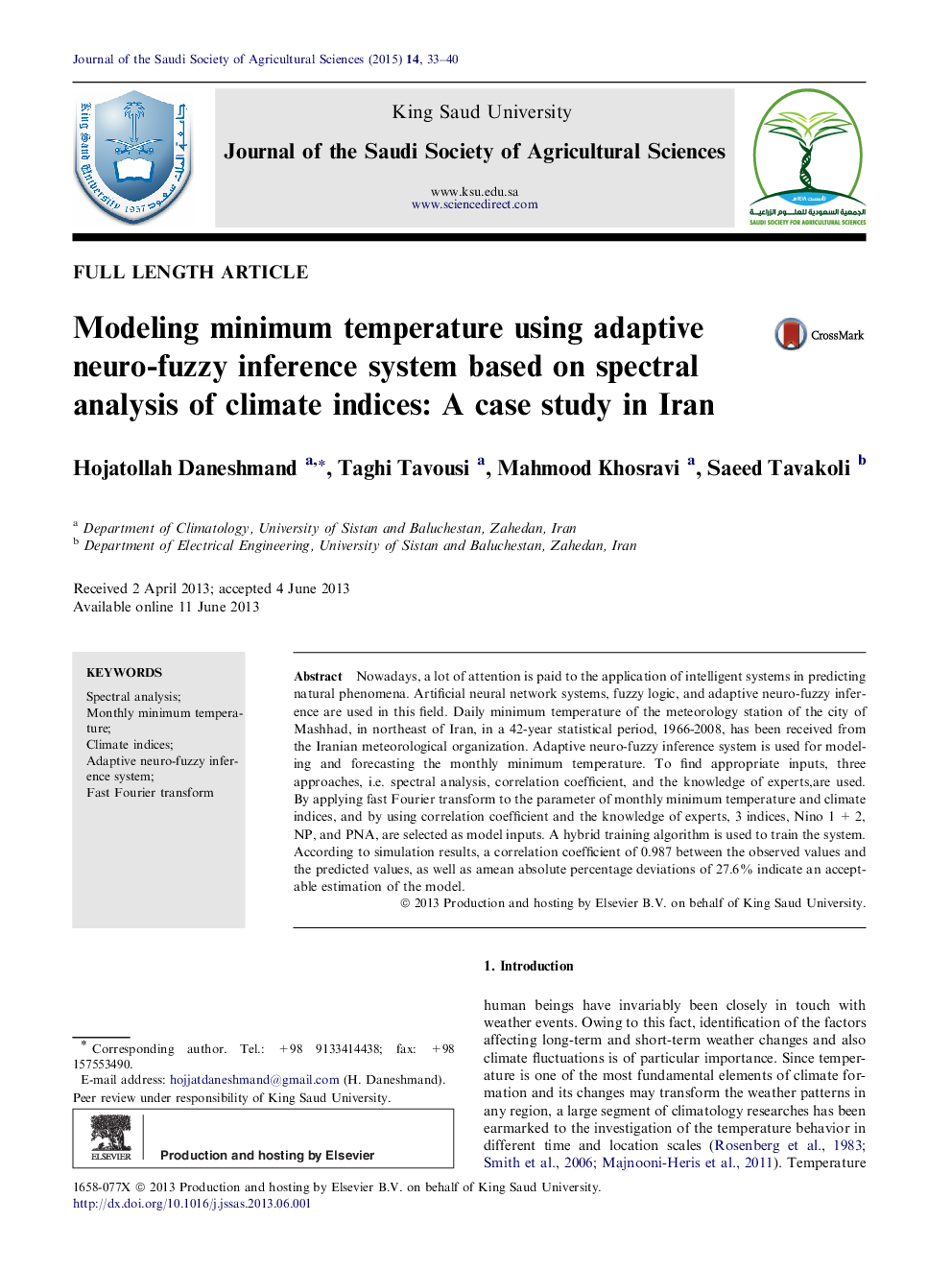| Article ID | Journal | Published Year | Pages | File Type |
|---|---|---|---|---|
| 4495639 | Journal of the Saudi Society of Agricultural Sciences | 2015 | 8 Pages |
Nowadays, a lot of attention is paid to the application of intelligent systems in predicting natural phenomena. Artificial neural network systems, fuzzy logic, and adaptive neuro-fuzzy inference are used in this field. Daily minimum temperature of the meteorology station of the city of Mashhad, in northeast of Iran, in a 42-year statistical period, 1966-2008, has been received from the Iranian meteorological organization. Adaptive neuro-fuzzy inference system is used for modeling and forecasting the monthly minimum temperature. To find appropriate inputs, three approaches, i.e. spectral analysis, correlation coefficient, and the knowledge of experts,are used. By applying fast Fourier transform to the parameter of monthly minimum temperature and climate indices, and by using correlation coefficient and the knowledge of experts, 3 indices, Nino 1 + 2, NP, and PNA, are selected as model inputs. A hybrid training algorithm is used to train the system. According to simulation results, a correlation coefficient of 0.987 between the observed values and the predicted values, as well as amean absolute percentage deviations of 27.6% indicate an acceptable estimation of the model.
